Photographs: Courtesy: PIB Vipin Vijayan in Tokyo
Prime Minister Manmohan Singh has indicated that the roadblocks in the way of implementing the common Goods and Services Tax for the country would be removed by 2014.
Interacting with industry leaders, part of Keidanren (the Japan Business Federation) in Tokyo on Tuesday, Dr Singh said: "The Indian government is in favour of GST. But India is a federation and in a federation, there are difficulties of getting all the states to agree and surrender their tax power in favour of this GST. But I am confident that we will overcome the hurdle..."
"We have been working for the last few months to persuade more and more state governments to fall in line. But it does require amendment of constitutional freedom and amending the constitution requires much more efforts than for ordinary constitutional amendments."
...
Manmohan Singh allays Japan Inc's concerns over GST
Image: Prime Minister Manmohan Singh greeting Keidanren Chairman Hiromasa Yonekura.Photographs: Courtesy: PIB
Seeking to allay the apprehensions cast by Japanese business community over the unequal tax slab in the states, Dr Singh further said: "I cannot say that we can deliver the GST tomorrow. But if you ask me, by the year 2014, I am confident that a GST of appropriate type will be in place. We are going to elections in Lok Sabha in April 2014. Once this election happens, I think there will be a strong determined effort, whichever government is there, to move towards the GST because there is general agreement among all professionals of all varieties and shades of opinion that we need a GST to help the Indian great story."
Later, addressing media persons after the Keidanren luncheon, Dr Singh said: "The India-Japan partnership is rich with possibilities. Japan's contribution to India's economic development has been enormous. For many years, Japan has been our largest bilateral donor and we are grateful for the assistance we have received. Japanese assistance has financed some of our most iconic infrastructure projects such as the Delhi. Metro and now the Dedicated Freight Corridor."
...
Manmohan Singh allays Japan Inc's concerns over GST
Image: A customer stands inside a Maruti Suzuki's car showroom.Photographs: Amit Dave/Reuters
"Japan has also been a major player in the modernisation of Indian industry in the period after economic reforms. The Maruti-Suzuki partnership is a household name in India."
Asserting that there was enormous scope for expanding economic co-operation between New Delhi and Tokyo, the prime minister said: "As Asian democracies, we have shared values. We have a very comfortable relationship between the two governments. There is also great public goodwill in both countries."
"Given this scenario, I believe we should have done much more than we have. I am told that Japanese companies rank India the most promising long term destination. However, India accounts for only 4 per cent of total Japanese outward investment flow into Asia. I am sure you will agree that this percentage should be much higher. We on our part will work hard to turn promise into reality."
...
Manmohan Singh allays Japan Inc's concerns over GST
Image: India-Japan's present bilateral trade is $18 billion.Photographs: Reuters
"The present bilateral trade of $18 billion does no justice to our potential. We must harness the full potential of our Comprehensive Economic Partnership Agreement to expand our trade and make it more broad-based and balanced. I hope that Japan would be more open and accessible for Indian companies in our areas of strength, such as pharmaceuticals and IT services. I am happy to say that the Social Security Agreement we concluded in November 2012 would be of great benefit to the growing number of Indian and Japanese professionals who live and work in each other's country," Dr Singh added.
The prime minister also sought to drive home the commonalities that the two economies shared in terms of coping with difficult situations in recent times.
...
Manmohan Singh allays Japan Inc's concerns over GST
Image: People observe a moment of silence during a rally after the magnitude 9.0 earthquake struck off Japan's coast.Photographs: Toru Hanai/Reuters
He said, "Japan experienced an unprecedented calamity in Fukushima. They met that challenge with characteristic resolve and determination, and your handling of the problem is the subject of much admiration. On the economic side, the latest economic forecasts and the rise in business confidence in Japan are positive developments. India and the world have a strong economic and strategic interest in Japan's success."
"India too has been affected by the difficult circumstances in the world economy. Our growth rate came down to 5 per cent last year due to a combination of global factors and domestic constraints. We cannot do much about the global economy. But we have reacted with determination to overcome domestic constraints on economic growth," Dr Singh added.
The prime minister highlighted the progress made in projects jointly executed by India and Japan, including the Eastern Dedicated Rail Freight Corridor between Mumbai and Delhi, the associated Delhi-Mumbai Industrial Corridor, Chennai-Bengaluru Industrial Corridor and the joint study on LNG pricing.
...
Manmohan Singh allays Japan Inc's concerns over GST
Image: The Shinkansen, or bullet train, is seen speeding past temporary houses.Photographs: Kyodo/Reuters
With regard to the Mumbai-Ahmedabad High Speed railway route, Dr Singh said: "This is an ambitious project and we will need to take a holistic view, based on our infrastructure needs, commercial viability, overall national priorities, and the availability of financial resources. We are willing for Japan and India to co-finance a joint feasibility study on this."
The Japanese want India to consider its Shinkansen system, which is well known for its efficiency and safety record.
Dr Singh had a couple of days ago stated that the Indian Railways had looked into the possibility of High Speed Rail corridors for passenger traffic in their long term perspective plans. "Such capital-intensive projects will be considered in accordance with our infrastructure requirement, national priorities and financial resources."

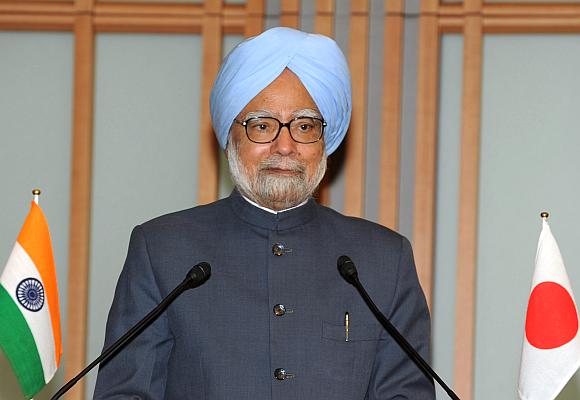
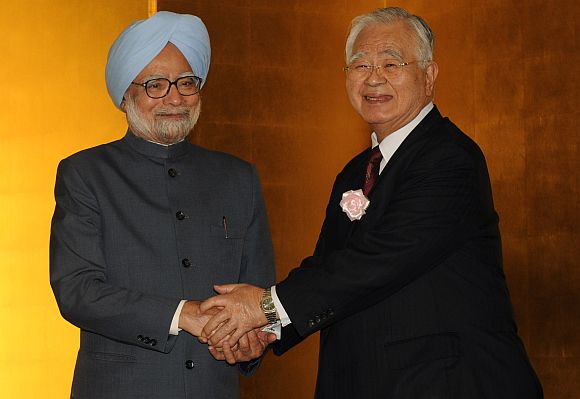
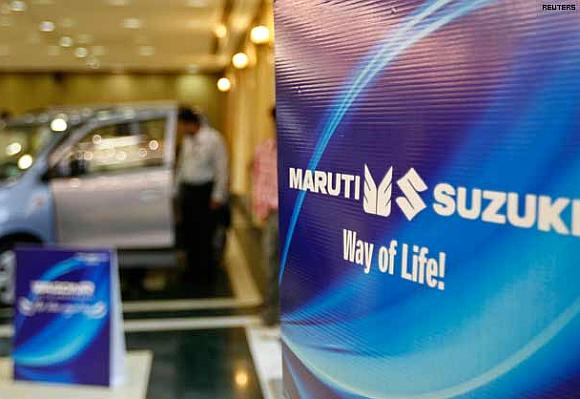
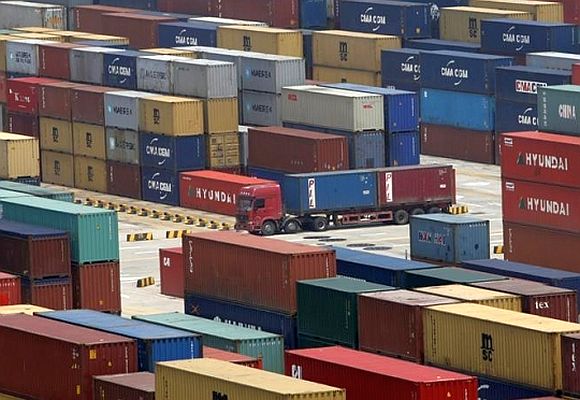
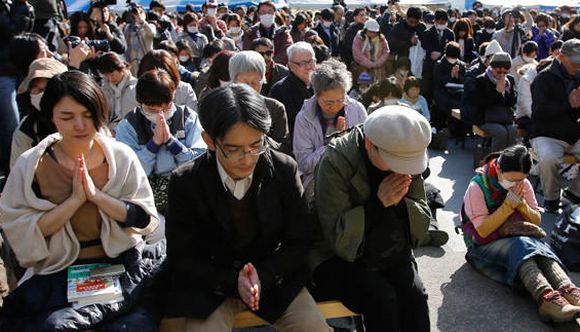
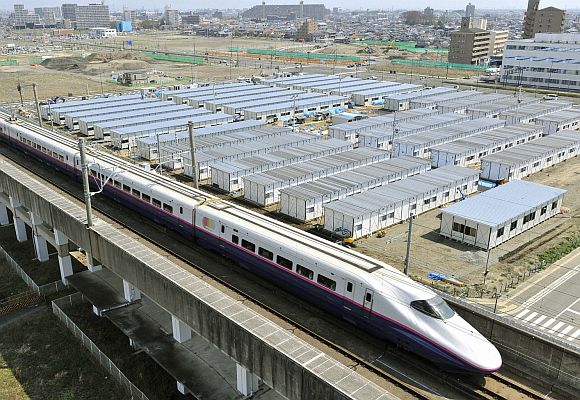
article